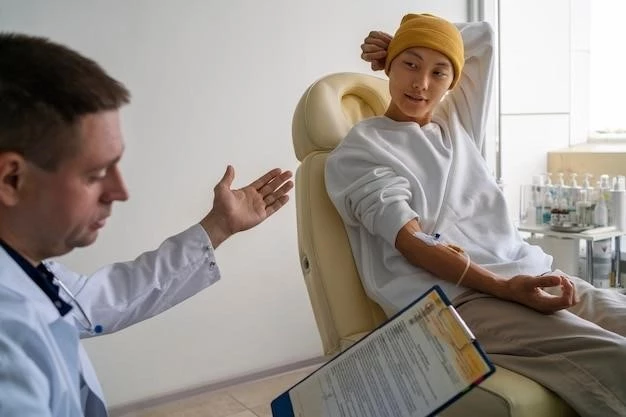Fara–Chlupackova Syndrome
Fara-Chlupackova Syndrome is a rare neurological disorder causing progressive degeneration in brain areas affecting movement coordination. The article highlights diagnosis, symptoms, treatment, genetic mutation, impact on the brain, and ongoing research for this condition.
Introduction
Fara-Chlupackova Syndrome, named after Czech physicians Jiri Fara and Eva Chlupackova, is an extremely rare neurological disorder characterized by a progressive degeneration in specific brain regions. This degeneration leads to difficulties in movement coordination and other neurological manifestations. While the syndrome’s exact prevalence is unknown, it is considered a rare condition. The genetic mutation responsible for Fara-Chlupackova Syndrome contributes to its unique clinical features and challenges in diagnosis and management. Understanding the impact of this mutation on the brain and nervous system is crucial for developing effective treatments and providing better care to individuals affected by this disorder. Ongoing research into the genetics and underlying mechanisms of Fara-Chlupackova Syndrome aims to improve diagnosis, explore potential therapies, and enhance understanding of the disease’s progression. This article examines the diagnostic criteria, symptoms, treatment options, genetic aspects, rarity, neurological implications, support strategies, and current research directions related to Fara-Chlupackova Syndrome.
Diagnosis
Diagnosing Fara-Chlupackova Syndrome can be challenging due to its rarity and the complex nature of the disorder. A comprehensive evaluation is necessary, involving a detailed medical history, neurological examination, and genetic testing to look for specific mutations associated with the syndrome. Imaging studies such as MRI scans may reveal characteristic patterns of brain degeneration that are indicative of Fara-Chlupackova Syndrome. The diagnosis often requires collaboration between neurologists, geneticists, and other specialists to accurately identify the disorder and differentiate it from other neurological conditions with similar symptoms. As the syndrome progresses, additional tests may be needed to monitor changes in the brain and assess the effectiveness of treatment strategies. Early and accurate diagnosis is essential for initiating appropriate interventions and providing the best possible care and support to individuals living with Fara-Chlupackova Syndrome;

Symptoms
Individuals with Fara-Chlupackova Syndrome experience a range of symptoms affecting movement, coordination, and neurological function. These may include progressive difficulties with balance, gait disturbances, tremors, muscle stiffness, and involuntary muscle contractions. As the disorder advances, individuals may also develop speech difficulties, cognitive changes, and behavioral abnormalities. The neurological symptoms of Fara-Chlupackova Syndrome can significantly impact daily functioning and quality of life. Additionally, affected individuals may experience challenges in activities requiring fine motor skills and coordination. Understanding the diverse range of symptoms associated with this syndrome is crucial for early recognition, diagnosis, and the implementation of appropriate treatment and supportive measures to address the complex needs of individuals living with Fara-Chlupackova Syndrome.
Treatment
Currently, there is no specific cure for Fara-Chlupackova Syndrome, and treatment focuses on managing symptoms and improving quality of life. A multidisciplinary approach involving neurologists, physical therapists, occupational therapists, speech therapists, and other healthcare professionals is essential to address the diverse needs of individuals with this syndrome. Therapeutic interventions may include physical therapy to maintain mobility and prevent contractures, occupational therapy to enhance daily living skills, and speech therapy to address communication challenges. Medications may be prescribed to manage symptoms such as tremors, muscle stiffness, and pain. Assistive devices and mobility aids can also help individuals maintain independence and mobility as the disorder progresses. Ongoing monitoring and adjustments to the treatment plan are important to ensure optimal symptom management and quality of life for individuals affected by Fara-Chlupackova Syndrome.
Genetic Mutation
Fara-Chlupackova Syndrome is associated with a specific genetic mutation that plays a key role in the development of the disorder. This mutation affects genes involved in crucial neurological functions, leading to the progressive degeneration observed in affected individuals. The inheritance pattern of Fara-Chlupackova Syndrome is often autosomal recessive, meaning that an individual must inherit two copies of the mutated gene – one from each parent – to manifest the condition. Understanding the genetic basis of the syndrome is essential for accurate diagnosis, genetic counseling, and ongoing research efforts aimed at developing targeted therapies. Researchers continue to investigate the impact of this genetic mutation on brain function and explore potential treatments that target the underlying genetic mechanisms of Fara-Chlupackova Syndrome.
Rarity
Fara-Chlupackova Syndrome is considered an extremely rare disorder, with only a limited number of cases reported worldwide. The rarity of this syndrome poses challenges in diagnosis, treatment, and support for affected individuals and their families. Due to its low prevalence, healthcare providers may have limited familiarity with the condition, leading to potential delays in diagnosis and access to specialized care. The rarity of Fara-Chlupackova Syndrome underscores the importance of increasing awareness among healthcare professionals, supporting further research initiatives, and enhancing resources for individuals living with this rare neurological disorder. Collaborative efforts between medical experts, researchers, advocacy groups, and affected communities are crucial for advancing understanding, promoting early detection, and improving outcomes for individuals affected by Fara-Chlupackova Syndrome.
Neurological Impact
Fara-Chlupackova Syndrome exerts a profound neurological impact on individuals affected by the disorder. The progressive degeneration of specific brain regions leads to disruptions in movement coordination, balance, and other neurological functions. This degenerative process can affect various areas of the brain responsible for motor control, resulting in a range of symptoms that impact daily activities and quality of life. As the syndrome advances, individuals may experience increasing difficulties with mobility, speech, cognition, and other essential functions. The neurological impact of Fara-Chlupackova Syndrome highlights the need for comprehensive care strategies that address the complex neurological manifestations of the disorder. Research into the specific brain changes and pathways affected by this syndrome is crucial for developing targeted interventions that can slow disease progression and improve neurological outcomes for individuals living with Fara-Chlupackova Syndrome.
Support and Care
Individuals diagnosed with Fara-Chlupackova Syndrome require comprehensive support and care to manage the complex challenges associated with the disorder. A multidisciplinary approach involving neurologists, physical therapists, occupational therapists, speech therapists, social workers, and other healthcare professionals is essential to address the diverse needs of affected individuals. Supportive care aims to improve quality of life, maximize independence, and enhance overall well-being. Caregivers and family members also play a crucial role in providing emotional support, assistance with daily activities, and advocacy for individuals with Fara-Chlupackova Syndrome. Access to community resources, support groups, and specialized services can help individuals and their families navigate the practical, emotional, and social aspects of living with a rare neurological condition. By fostering a supportive environment and implementing tailored care plans, healthcare providers and caregivers can significantly enhance the quality of life for individuals affected by Fara-Chlupackova Syndrome.
Research and Future Directions
Ongoing research efforts focused on Fara-Chlupackova Syndrome aim to deepen our understanding of the genetic mechanisms, neurological impact, and disease progression of this rare disorder. Genetic studies continue to identify novel mutations associated with the syndrome, shedding light on its underlying causes and potential therapeutic targets. Investigating the specific brain regions affected by Fara-Chlupackova Syndrome is crucial for developing targeted treatment strategies that address the progressive degeneration observed in affected individuals. Future research directions include exploring gene therapies, disease-modifying drugs, and other innovative interventions to slow the progression of the disorder and improve neurological outcomes. Collaborative research initiatives involving clinicians, geneticists, neuroscientists, and other experts are essential for advancing knowledge, developing effective treatments, and enhancing care for individuals living with Fara-Chlupackova Syndrome. By supporting research into this rare neurological condition, we can strive towards improved diagnostic tools, personalized treatments, and ultimately, better outcomes for those affected by Fara-Chlupackova Syndrome.
Conclusion
In conclusion, Fara-Chlupackova Syndrome represents a rare neurological disorder characterized by progressive degeneration in specific brain regions, leading to challenges in movement coordination and other neurological functions. Despite its rarity, ongoing research into the genetic mutations and neurobiological pathways associated with the syndrome offers hope for improved diagnosis and targeted treatments. Providing comprehensive support and care, including multidisciplinary interventions, can significantly enhance the quality of life for individuals living with Fara-Chlupackova Syndrome. Increasing awareness, promoting research collaborations, and fostering a supportive environment are essential steps towards advancing knowledge, developing effective therapies, and ultimately improving outcomes for those affected by this rare neurological condition. By continuing to prioritize research, advocacy, and holistic care approaches, we can strive to make meaningful progress in the understanding and management of Fara-Chlupackova Syndrome.
